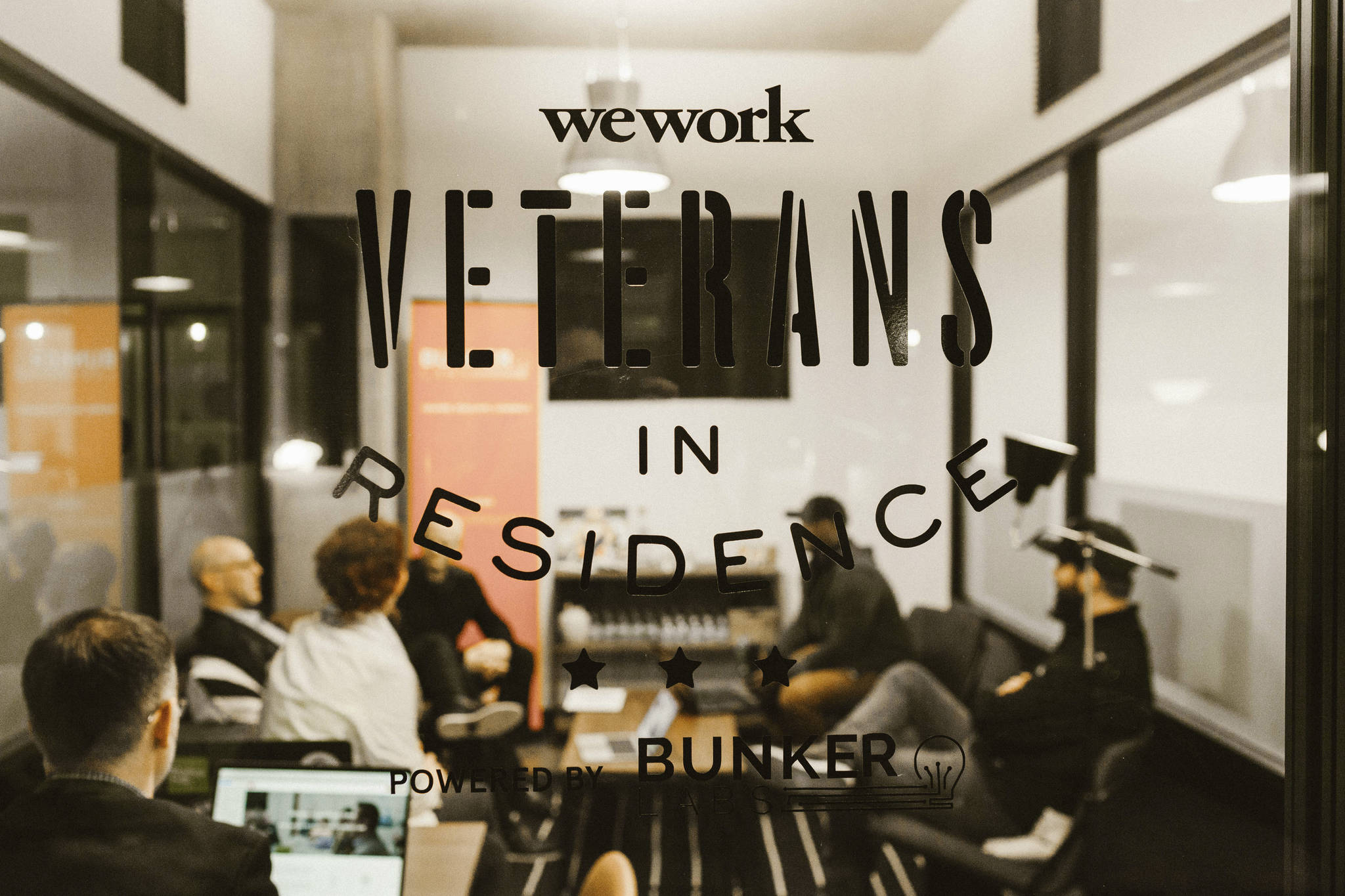Last year, Daniella Young was contemplating her next steps after completing a two-year contract as a business intelligence and fraud analyst and program manager at Microsoft when a lightbulb went off. She recalled the empowering feeling of attending a painting class at Washington, D.C.’s Walter Reed Army Medical Center after being hospitalized for an illness during one of her military deployments in Afghanistan in 2014. Although she’d never painted before, Young remembered thinking, “It’s not really about being a great artist. It’s about the process.” Art allowed her to explore different aspects of herself that she was previously unaware existed.
So when she decided to launch a leadership coaching and consulting company last year, painting seemed like a natural way to illustrate military leadership models in a corporate setting. Young started Taskforce Art to intentionally facilitate workplace conflicts, then—through training and workshops—she aims to create cohesive conversations without the use of micro-managing. By using “art instead of artillery,” Young leads art challenges that help managers see holes in their management styles in a low-stakes environment.
“Avoiding conflict doesn’t get you anywhere, just resolving conflict is of course the end goal, but actually participating in the conflict is what helps you build strength,” Young said.
Yet like many veterans with leadership skills and entrepreneurial drive, she lacked the network and business acumen to get her own startup off the ground in the way that she envisioned.
So Young connected with Bunker Labs, a national non-profit that offers educational programs and resources for veteran entrepreneurs. And then in January, she joined a Seattle cohort of ten veterans or veteran spouses in the WeWork Veterans in Residence program — a six-month partnership between Bunker Labs and the shared workspace company WeWork. The program aims to serve 1,000 veterans in ten cities—including Seattle—over the next five years by offering free workspace, networking, and educational opportunities.
King County is home to at least 127,000 current and former members of the U.S. military, Army Reserves, and the National Guard of varying races, ages, genders, and interests. While the pervasive idea that most veterans battle PTSD or addiction persists, WeWork and Bunker Labs seeks to replace that narrative with one that depicts veterans as highly-skilled leaders.
WeWork’s Veterans in Residence powered by Bunker Labs has also impacted local veterans outside of the program, said WeWork Manager of Public Affairs Michael Harold. He referenced one Seattle entrepreneur who began to publicly embrace his own veteran status by adding his military experience to his LinkedIn profile once he learned about the program.
“We want to see veterans thrive,” said Gina Phillips, general manager of WeWork for the Pacific Northwest. “Vets have grit, discipline, and experience performing under pressure—all important aspects of the entrepreneurial mindset. WeWork is doing our small part to give back by empowering our veteran community to do what they love, which is at the core of what we’re all about. By bringing them into our community and connecting them with resources, it’s our hope that they not only reach their own professional goals, but help the broader community understand the tremendous opportunity and entrepreneurial vigor hardwired into our veteran population.”
The Seattle WeWork veterans group also includes Michael Croix, a second-generation marine and founder of SunFly, a company that’s developing UV indicator ink that informs users when they’ve applied enough sunscreen and when to reapply. “The camaraderie, collaboration and support of our cohort, combined with the global network of 210K+ other professionals, mentors, and entrepreneurs in the Bunker Labs community provides us with all the information, tools, and support we need for success,” Croix wrote in a statement.
Young said that the opportunity to collaborate with other veteran entrepreneurs like Croix has been invaluable. She’s also met ideal clients in the cafeteria of WeWork’s South Lake Union during coffee breaks.
She hopes to spread the leadership skills that she gained in the military during her four-hour workshops which teach teams how to deal with conflict. A two-day leadership off-site workshop helps employers and employees develop cohesive communication skills by teaching leaders the tools needed to strengthen their teams. During the workshops, she teaches leadership theory, and then assigns the teams a series of art challenges. First, teams are given an art challenge in which they fail because they weren’t given enough information, followed by a test in which they’re being micro-managed. Participants are also given a challenge with the proper amount of guidance, but a conflict—such as black paint being thrown onto the art piece—is introduced into the assignment.
“From my observation, the military purposely develops leaders like almost no other,” Young said. “When they need a new general they can’t hire one, they have to promote from within. So from the first day of basic training or officer training … you’re being taught leadership, even if it’s just self-leadership.” Young hopes that this culture will permeate into popular thinking so that workplace harmony becomes the norm.
mhellmann@seattleweekly.com








